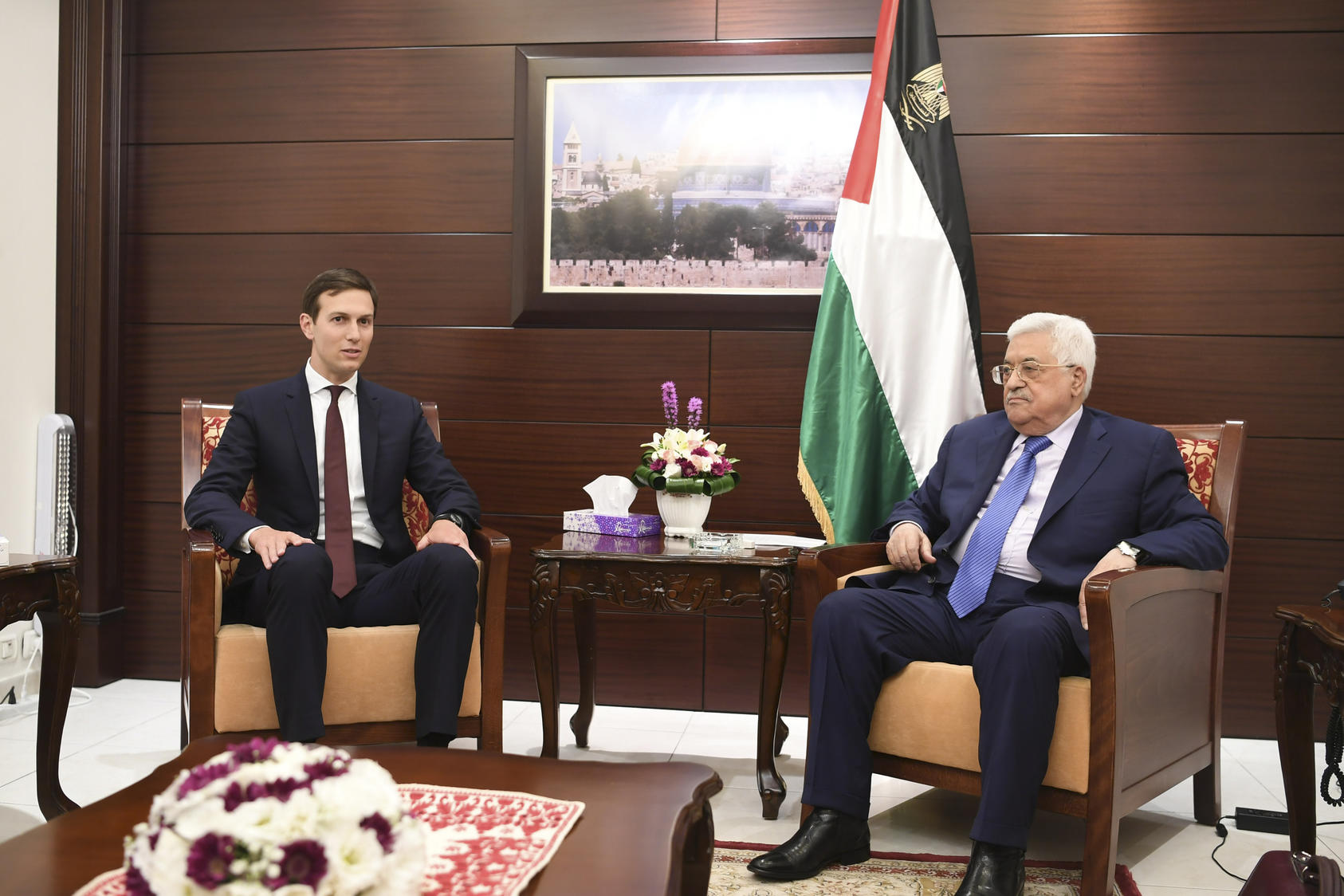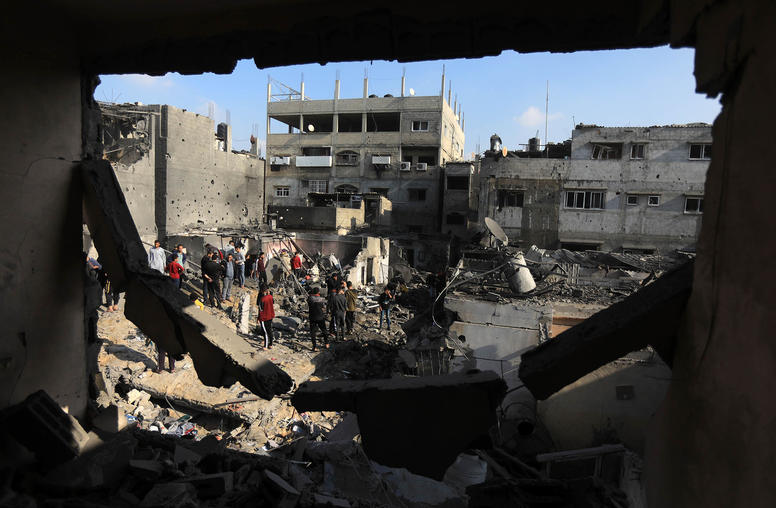As President Trump’s senior advisor, Jared Kushner, was leading delegation meetings with Israeli Prime Minister Netanyahu and Palestinian President Abbas last week, the U.S. State Department spokesperson demurred on whether the administration supports a two-state solution, noting a preference to leave it to the parties “to work that through.” This echoes a position first voiced by Trump in February. But persistence in this approach risks undermining the administration’s own desire to broker “the ultimate deal.”

Kushner’s meetings in Jerusalem and Ramallah were preceded by stops elsewhere for talks with the leaders of Egypt, Jordan, Saudi Arabia, Qatar and the United Arab Emirates. The itinerary underscores a strategy of enlisting regional support, which could be sound when employed parallel and complementary to an Israeli-Palestinian track. It holds the potential to enhance both the prospects of bilateral success and the sustainability of any agreement reached.
But equivocating on the goal of a two-state solution will be an obstacle to winning regional buy-in for Trump’s peace efforts. Earlier this year, King Abdullah of Jordan and Egypt’s President Abdel Fattah Al-Sisi said there could be no concessions on the establishment of a Palestinian state. And the Arab League continues to affirm the Saudi-led Arab Peace Initiative, launched in 2002, which is premised on establishing a State of Palestine alongside the State of Israel.
Palestinian leaders also view the two-state framework as the essential goal for resumed negotiations. In the lead-up to last week’s meeting with the U.S. team, President Abbas and other Palestinian officials voiced a steady stream of discontent with the unwillingness of the U.S. administration to commit on this score. Abbas already is struggling to maintain legitimacy with constituents at home because he has been unable to deliver on the promise of a Palestinian state.
Meanwhile, Netanyahu is battling a corruption scandal. Loathe to alienate key supporters under such conditions, he is doubling down on opposition to withdrawing from territory.
Yet the long-holding pattern persists: a majority of Israelis and Palestinians support the idea of a peace agreement over the status quo and support the goal of a two-state solution over any alternative, albeit in declining numbers.
Certainly, overwhelming majorities on both sides don’t believe peace is achievable in their lifetimes. Israelis and Palestinians alike are cynical about their leaders, and distrustful that the “other side” is a partner for peace. But polls have shown consistently that a meaningful diplomatic process can bolster public support for a peace agreement.
The parties, under their current embattled leaderships, won’t find a way forward by themselves. The U.S., in concert with the international community, will need to lead: identifying the goal, holding the Palestinian and Israeli leaderships to account for behavior that runs contrary to that objective, and establishing incentives for creating an environment conducive to renewed negotiations.
The U.S. has vested security interests in achieving an Israeli-Palestinian peace agreement. Left to its own devices, this conflict festers and flares, as it did in July with the deadly violence over the Temple Mount, also known as Haram al-Sharif. And while another Israel-Gaza war is seemingly in abeyance, the humanitarian and political ingredients argue against complacency.
The senior level of U.S. engagement represented by last week’s delegation is a vital step toward motivating both sides. Defining clear expectations will need to follow.



